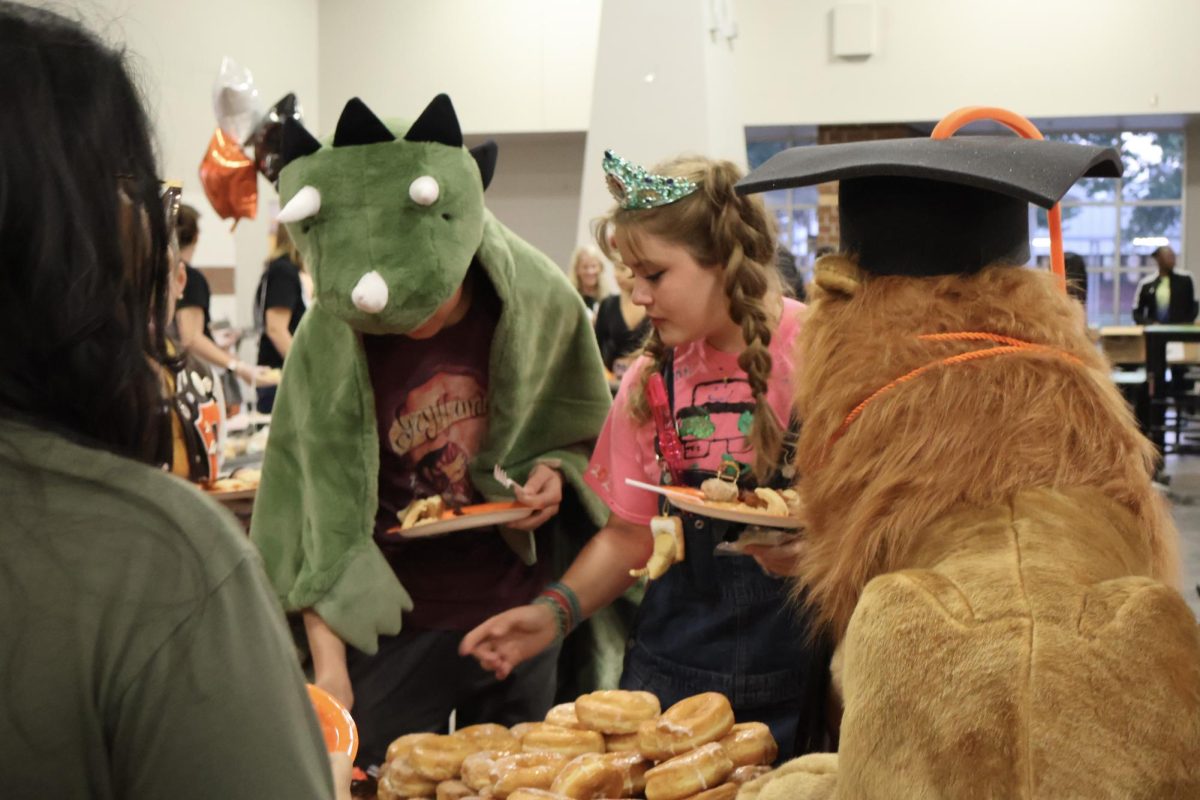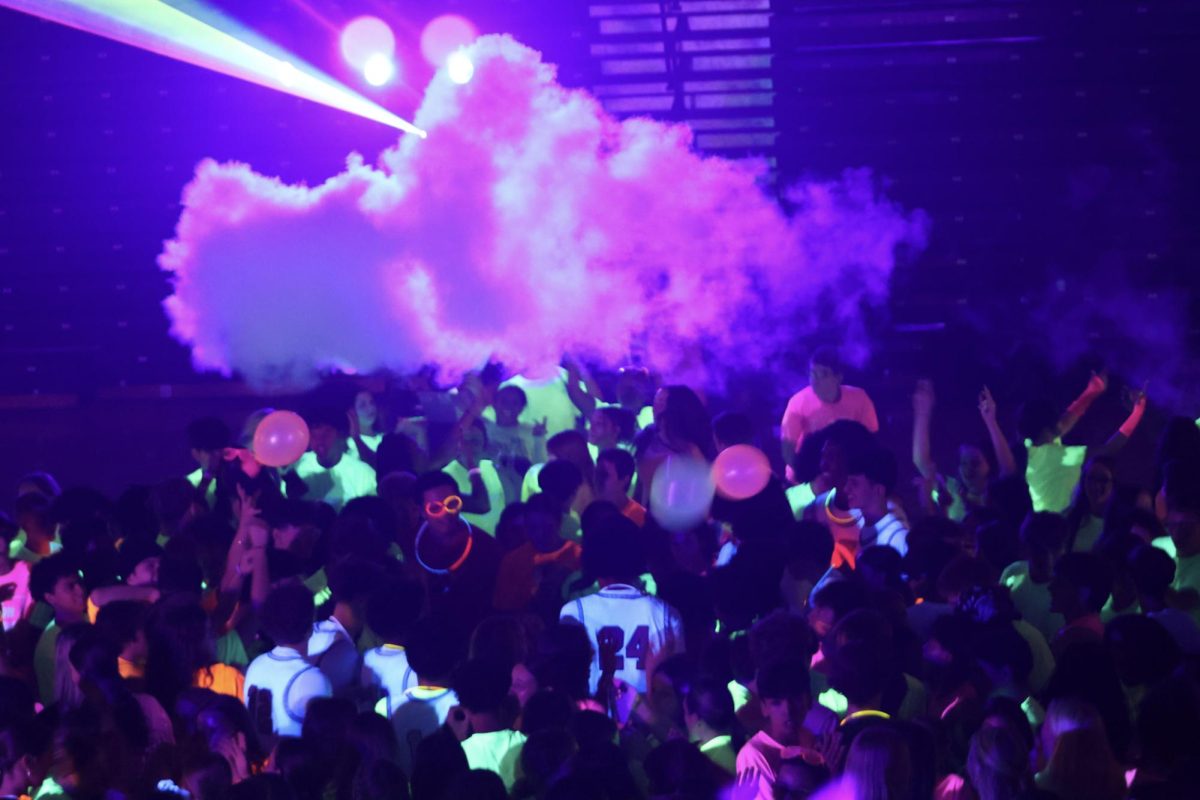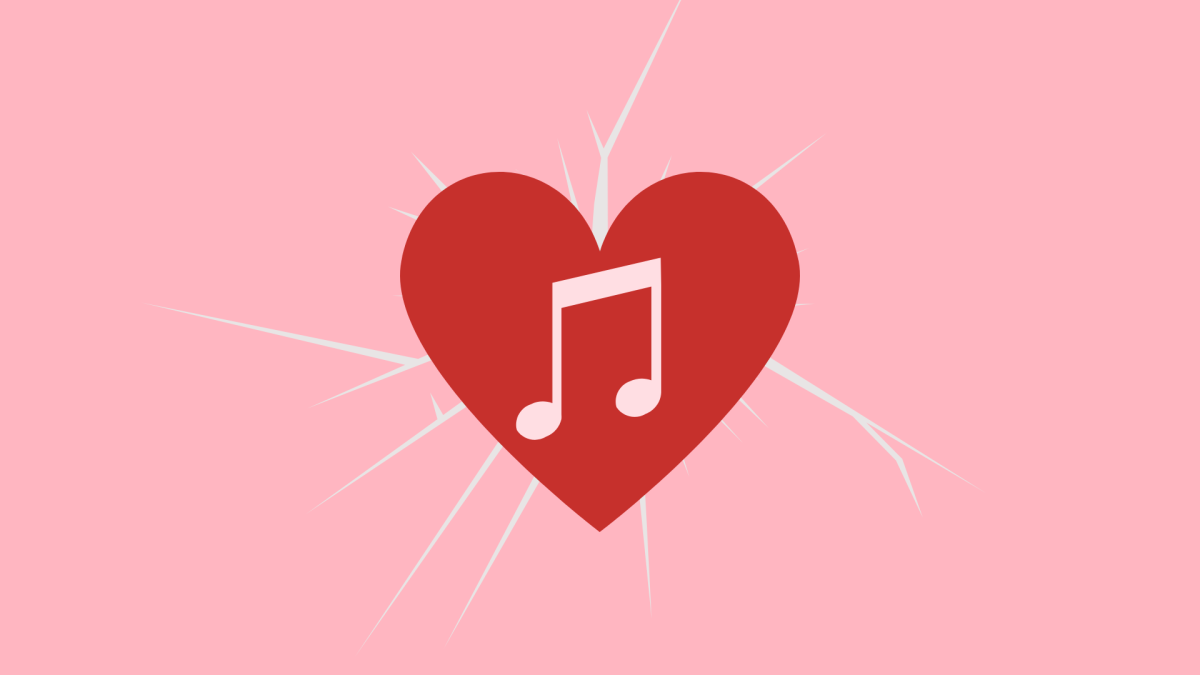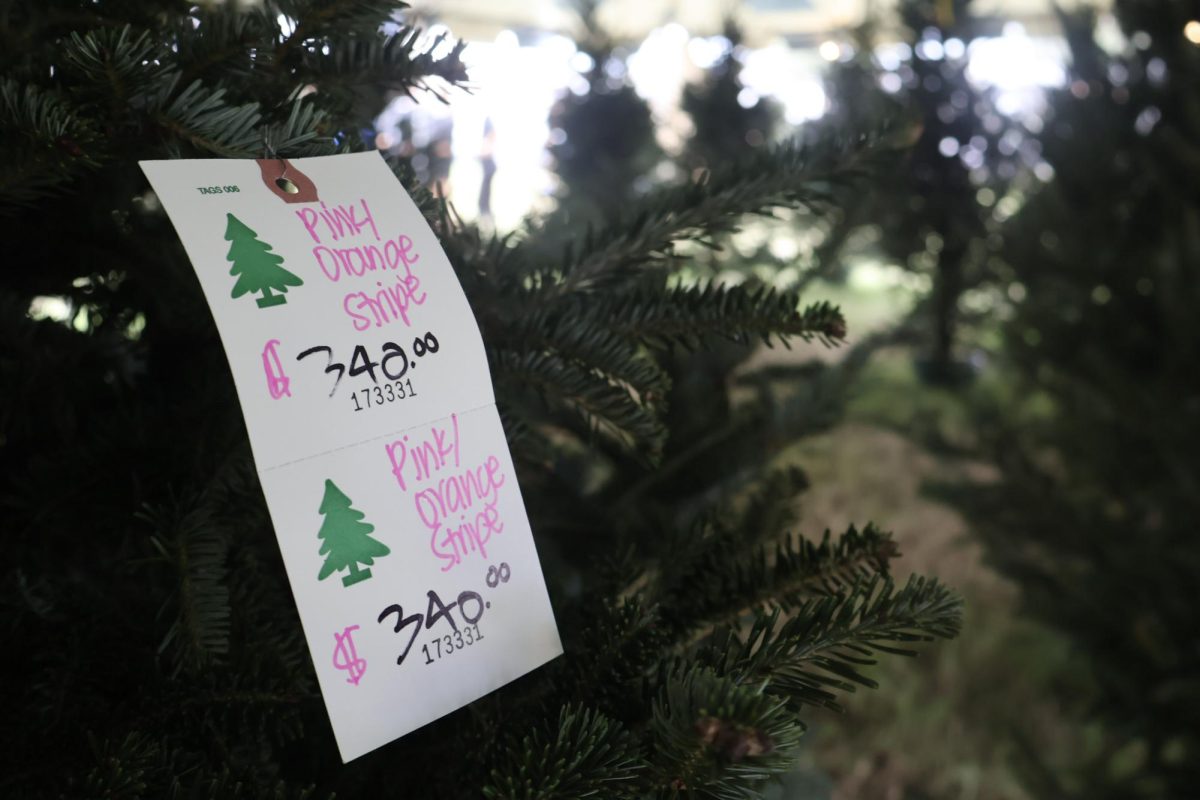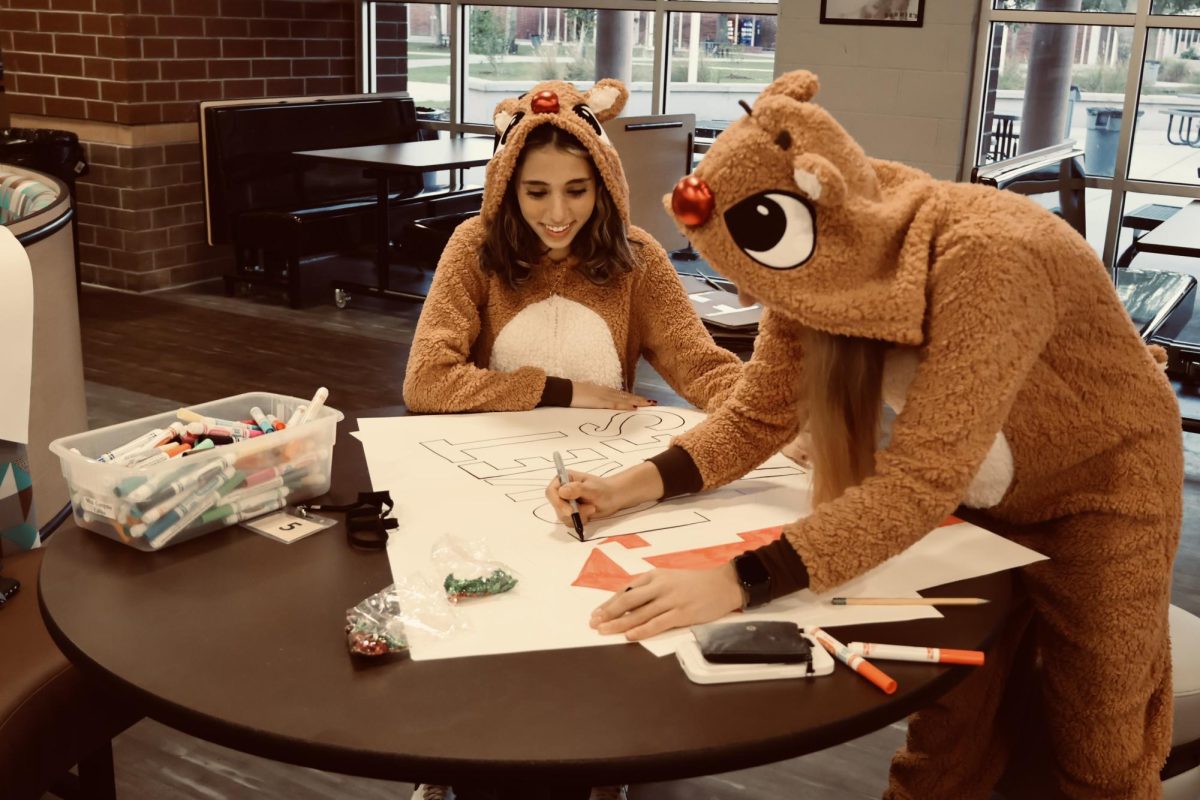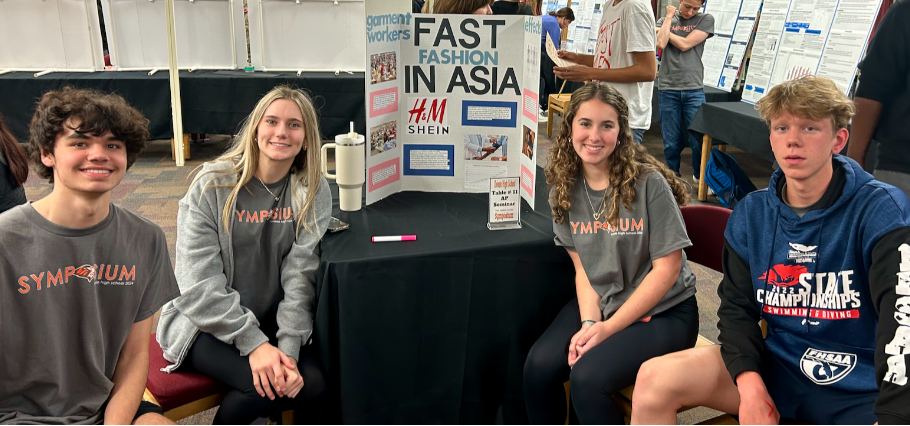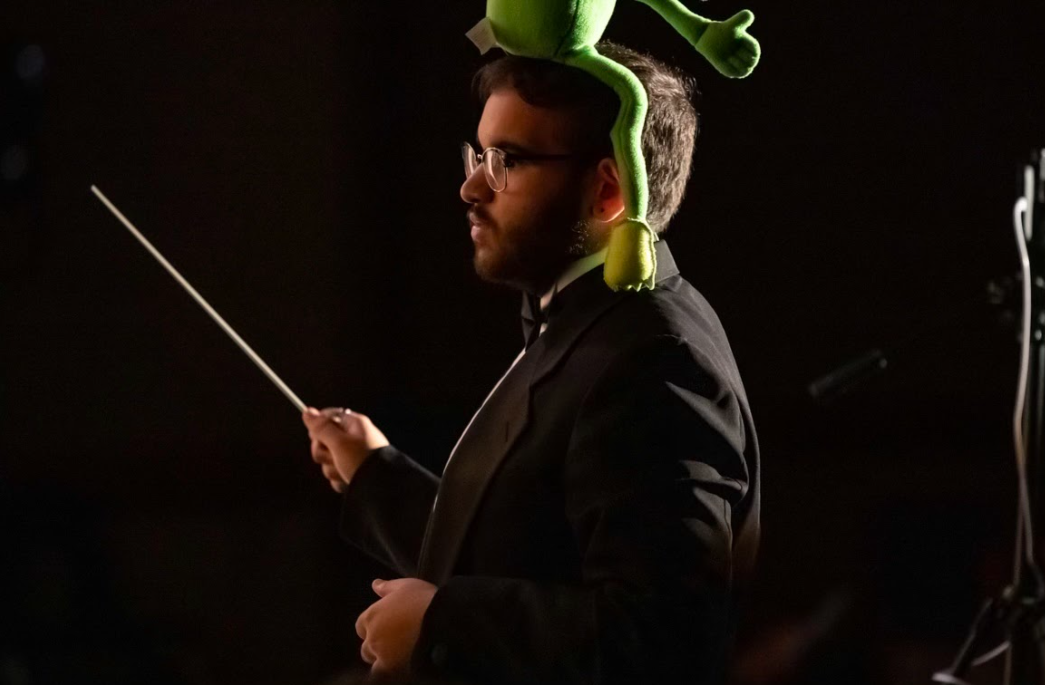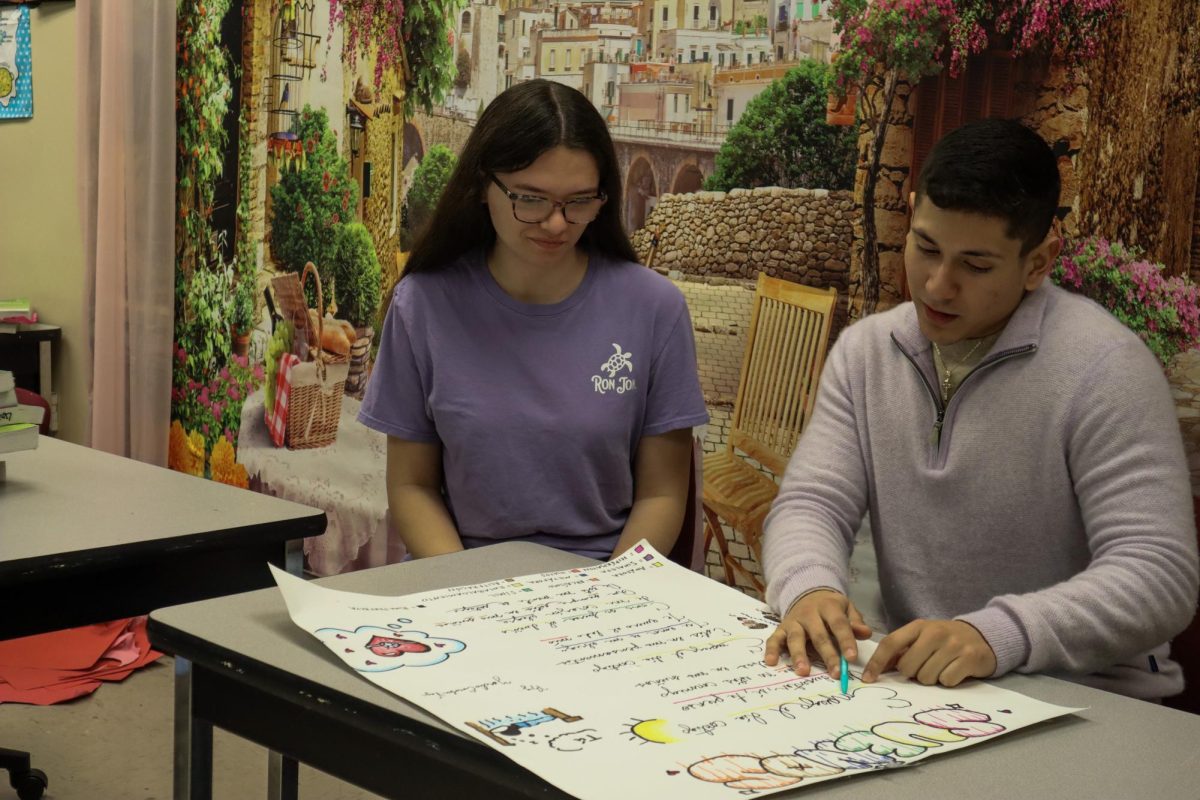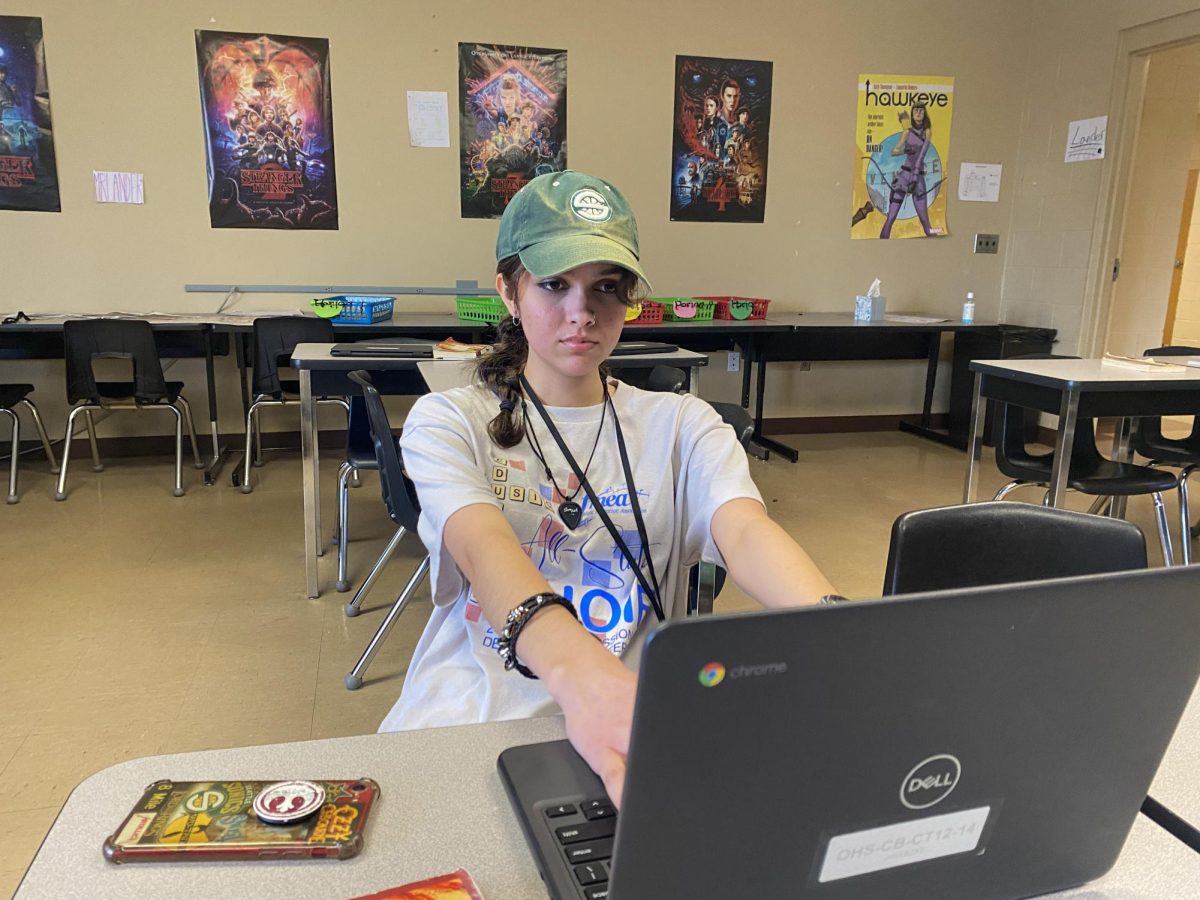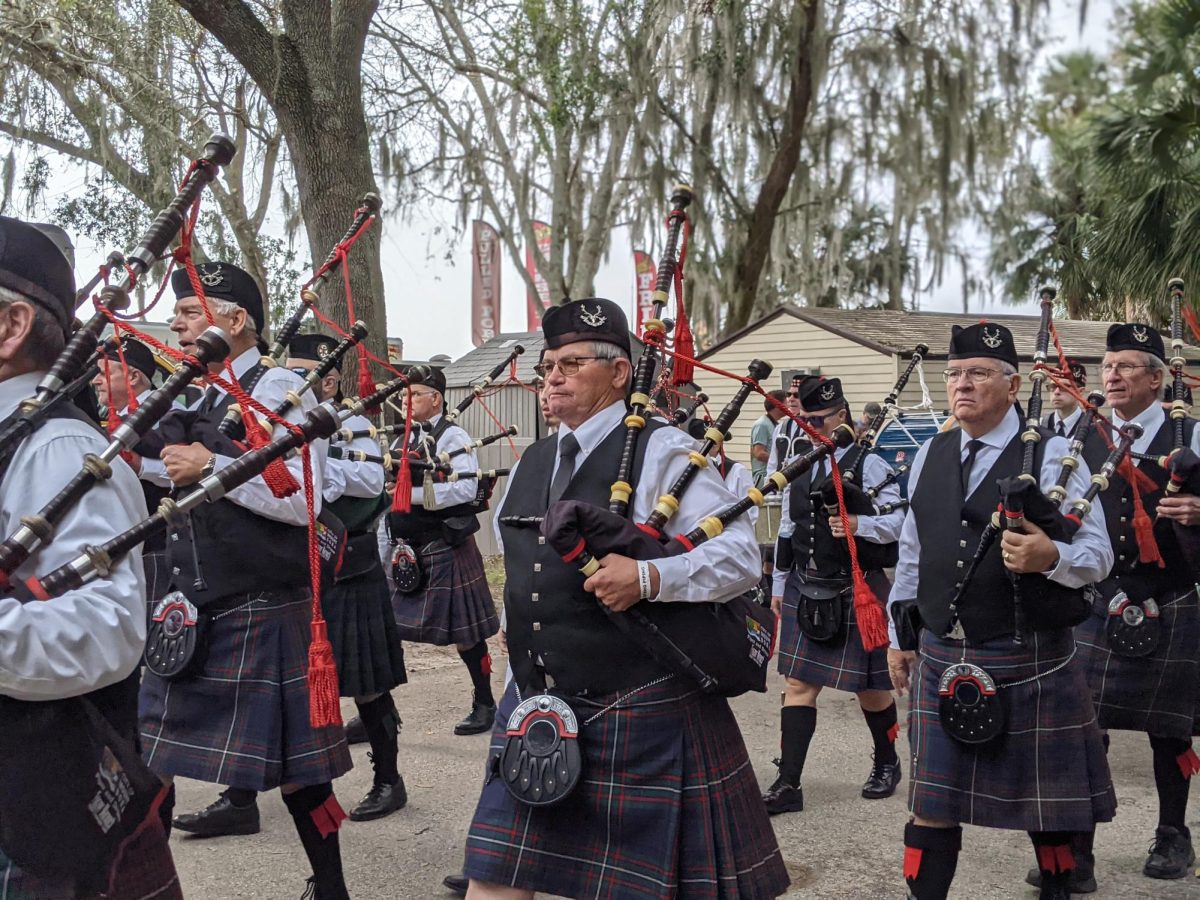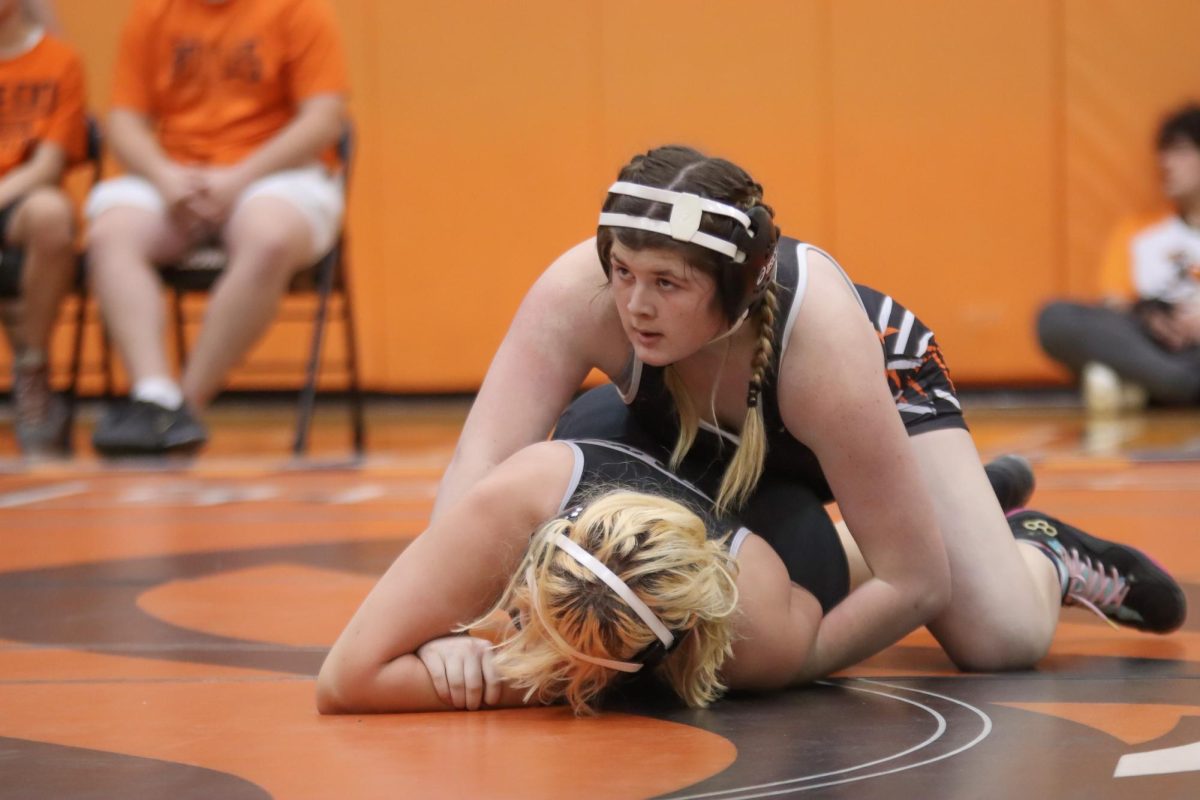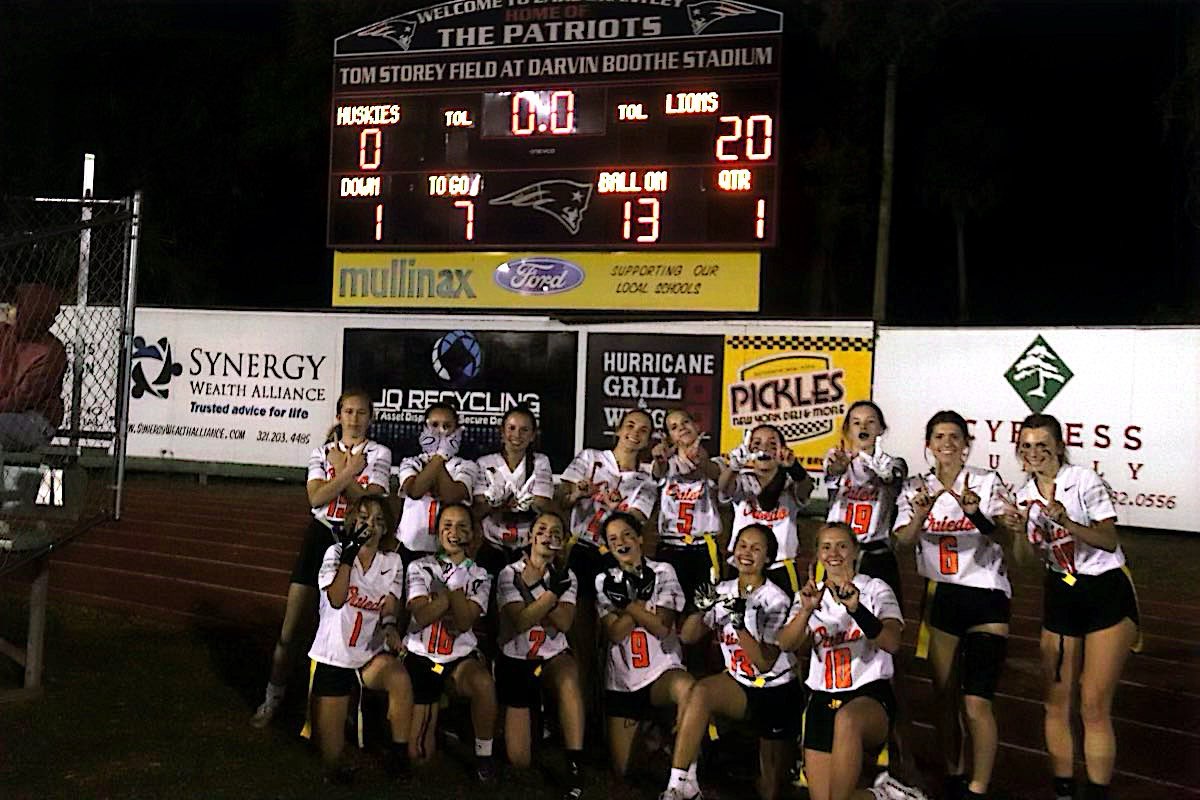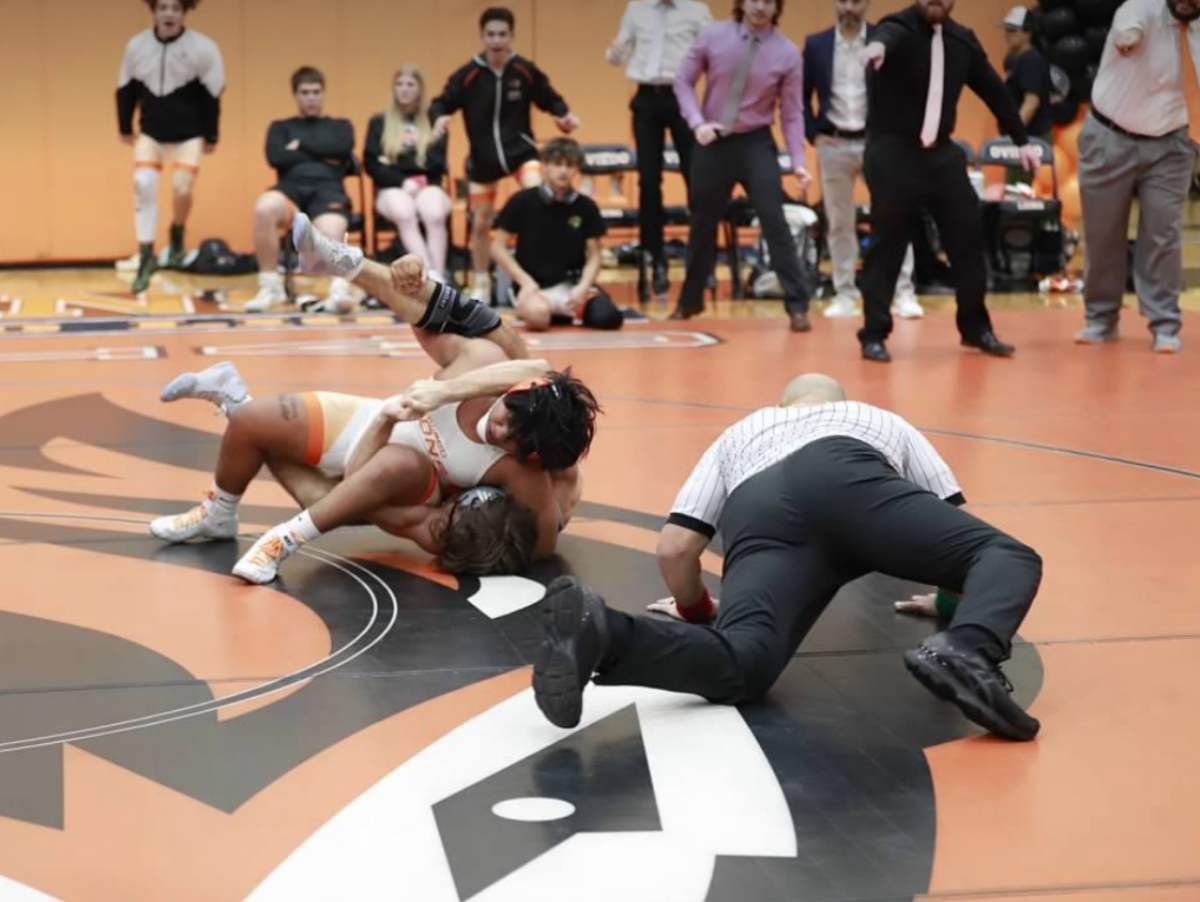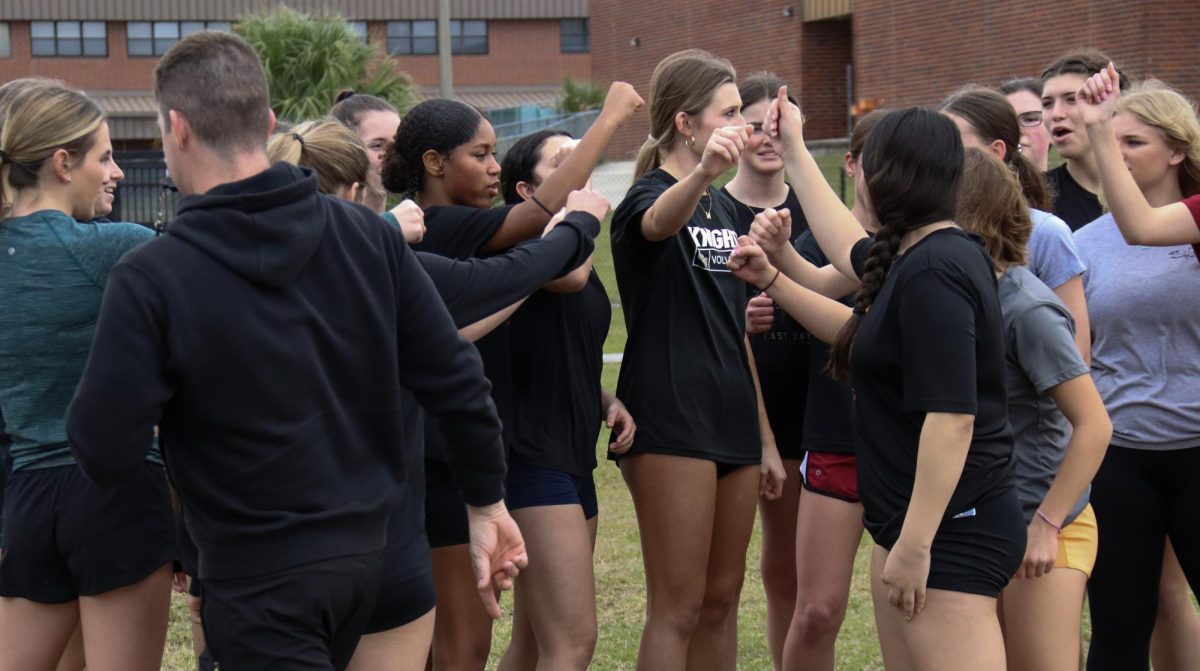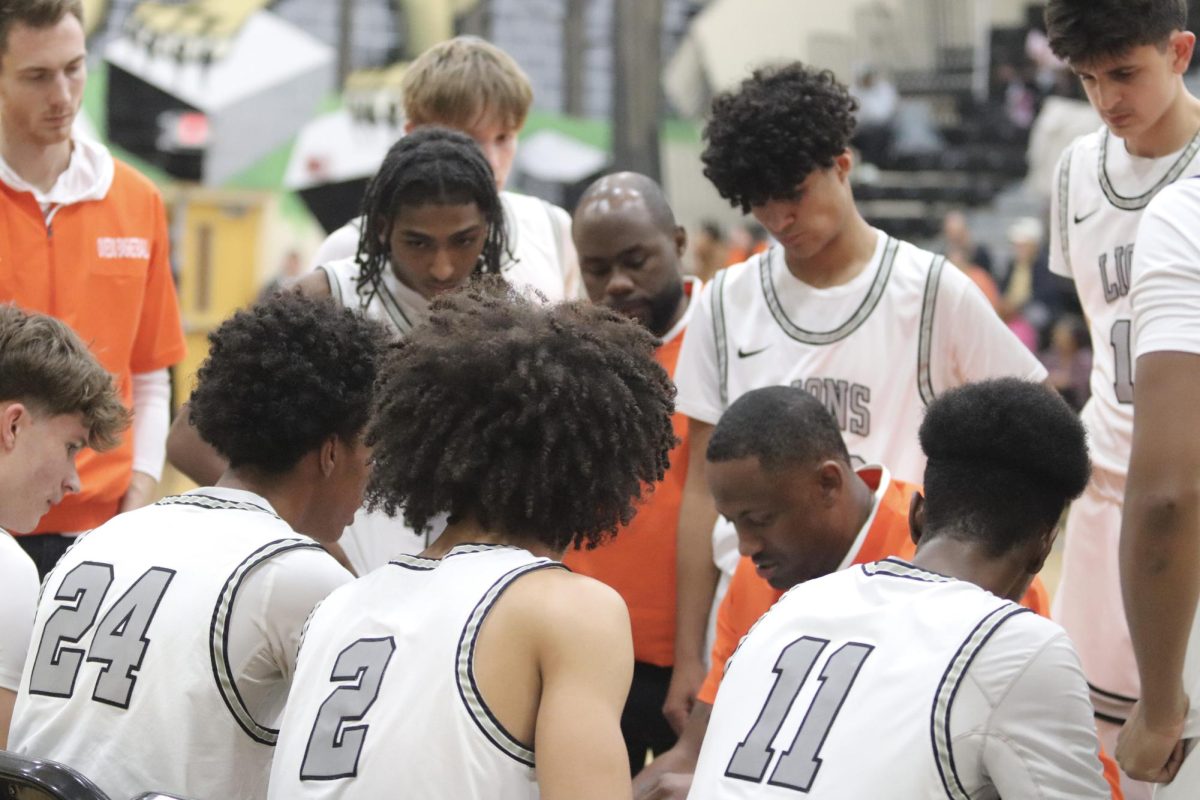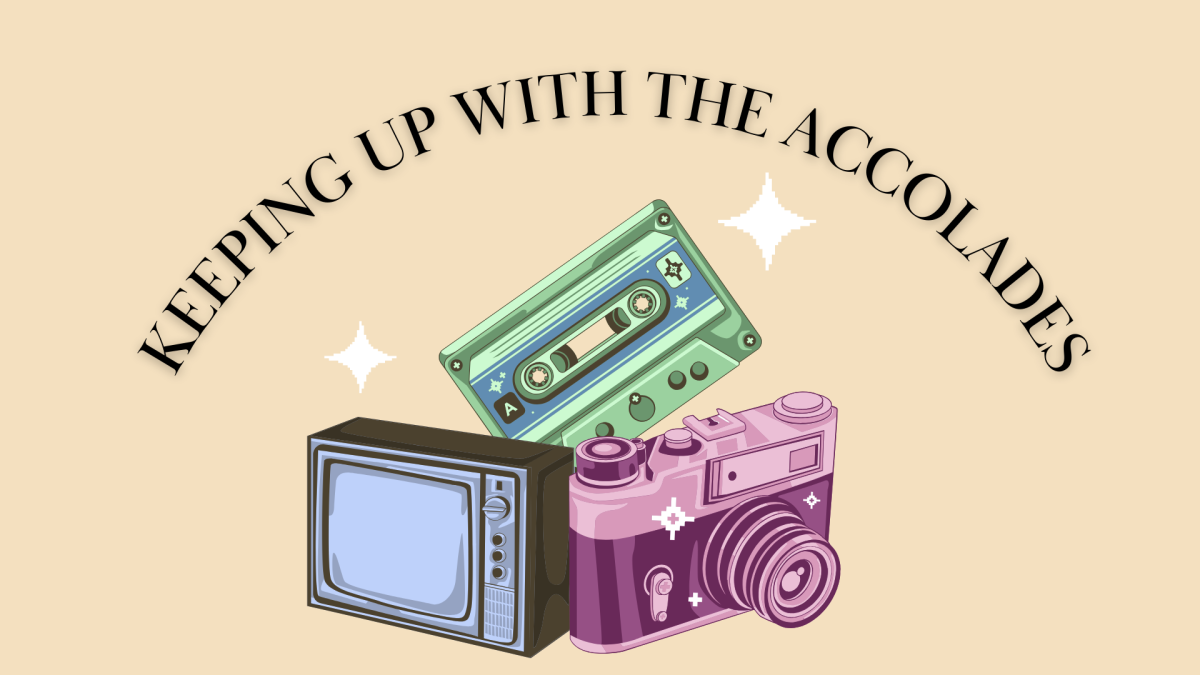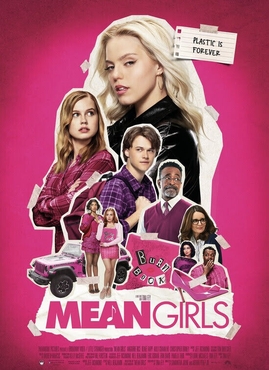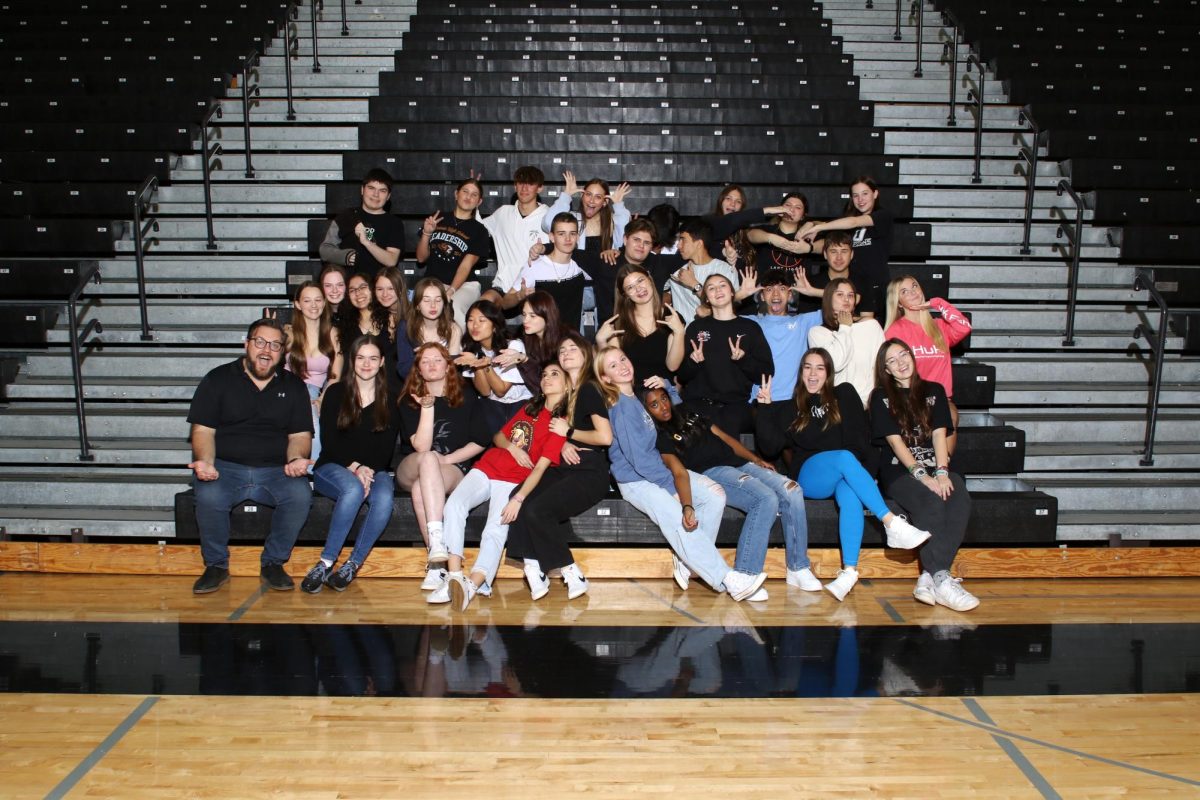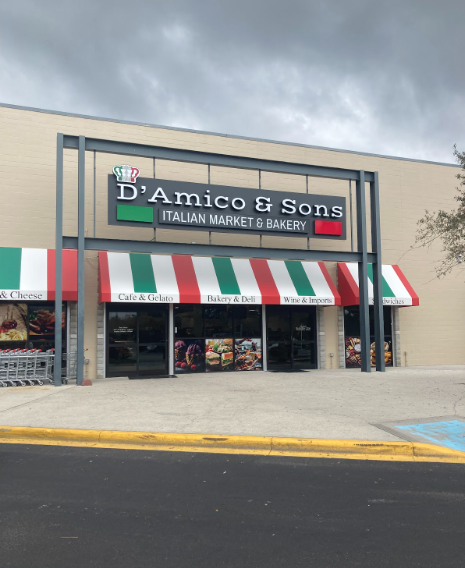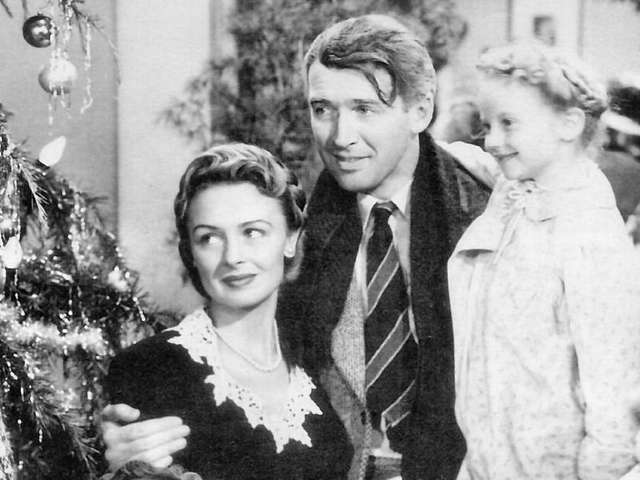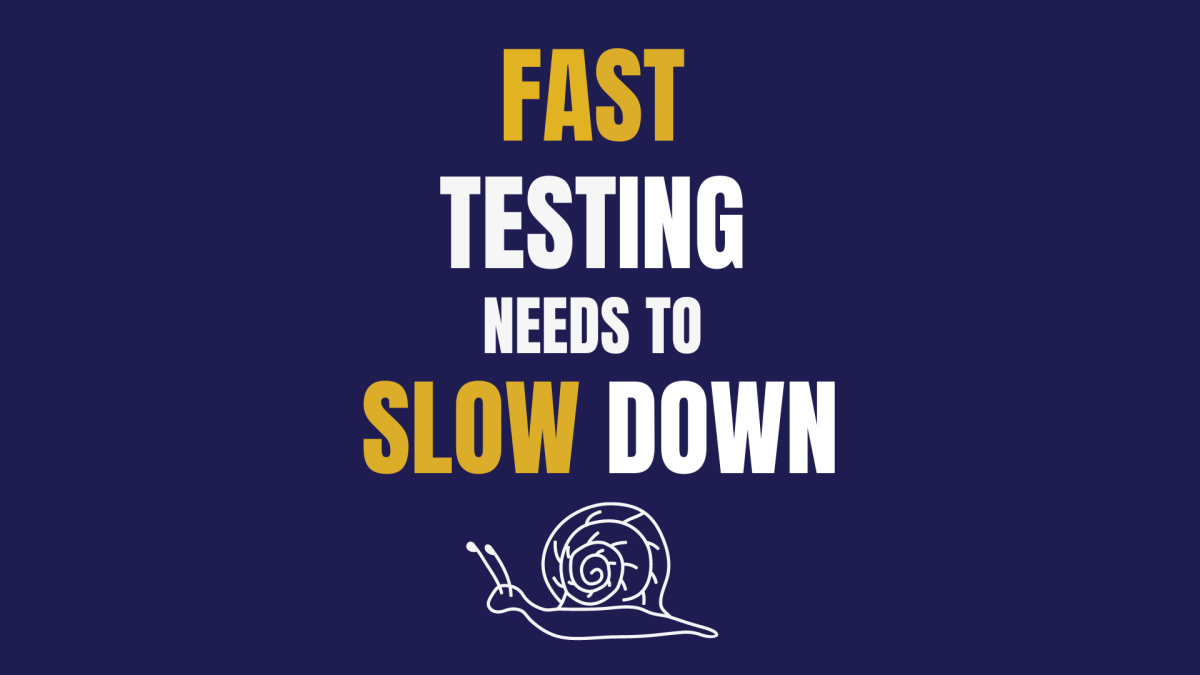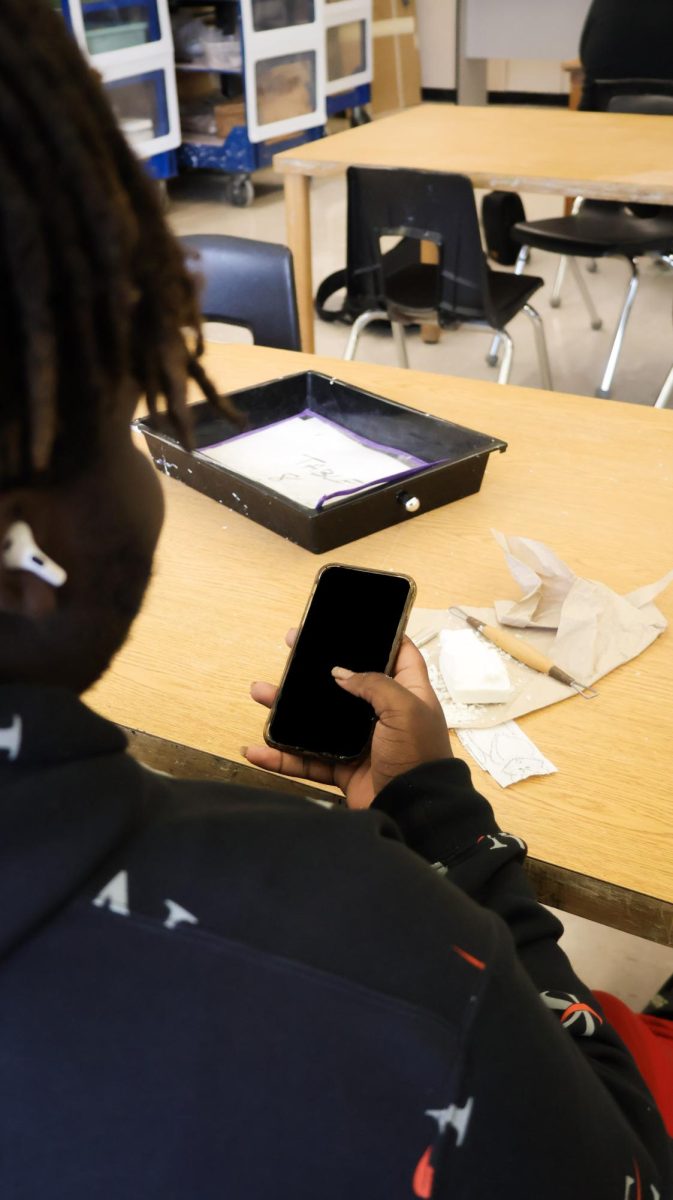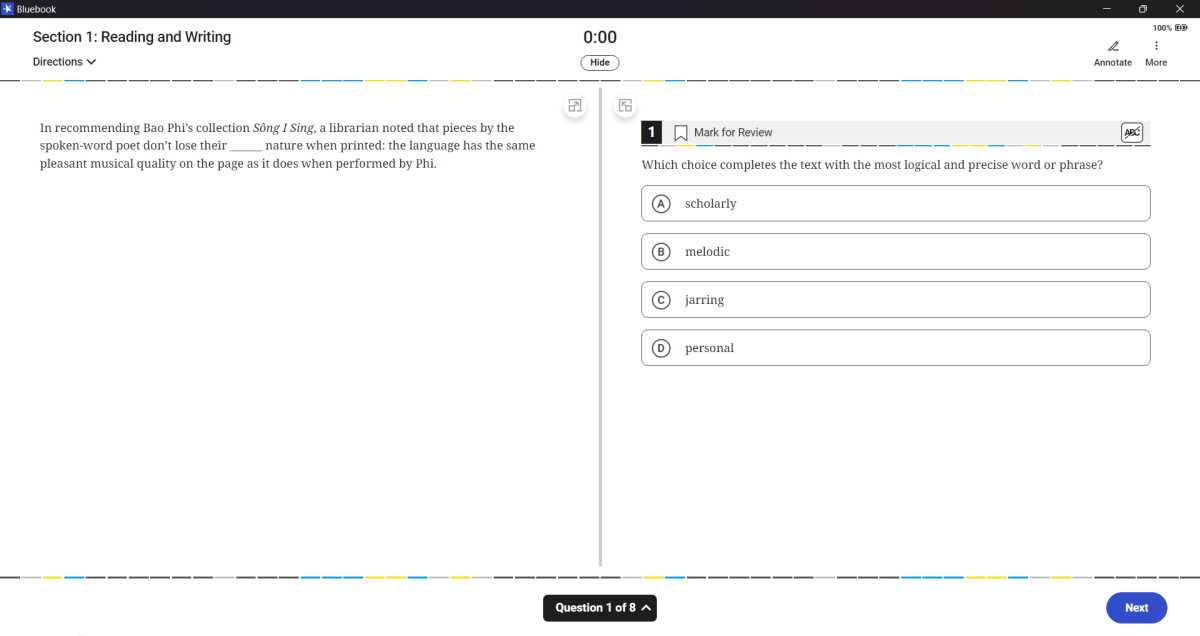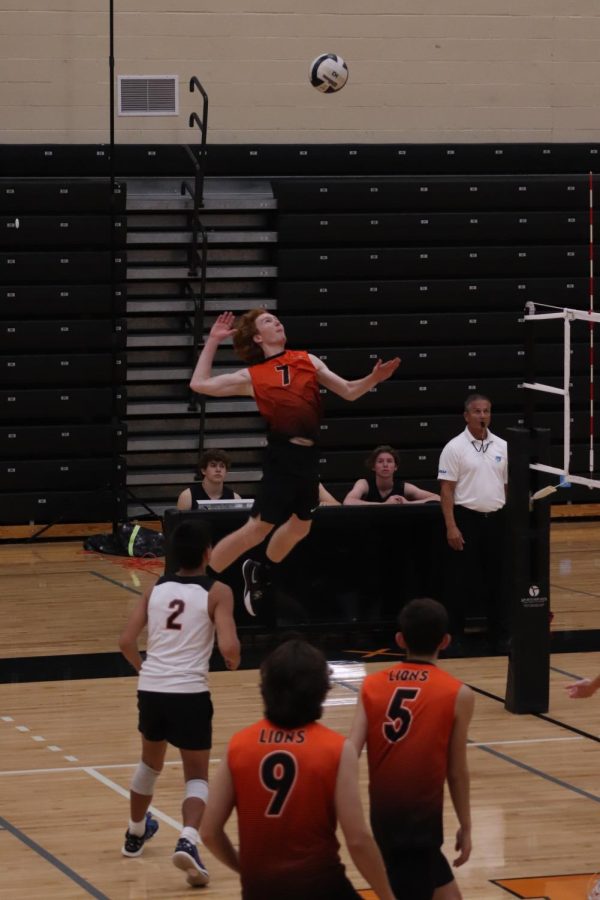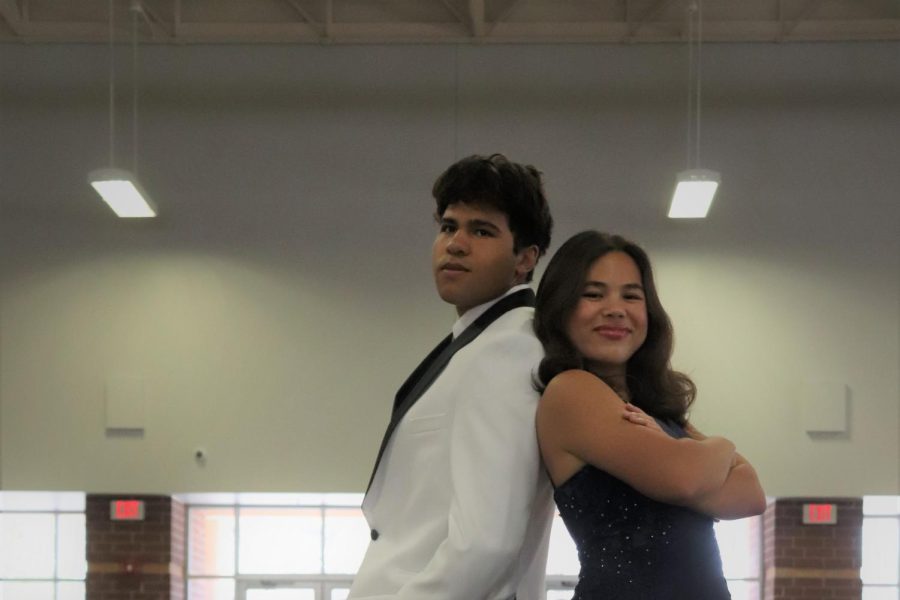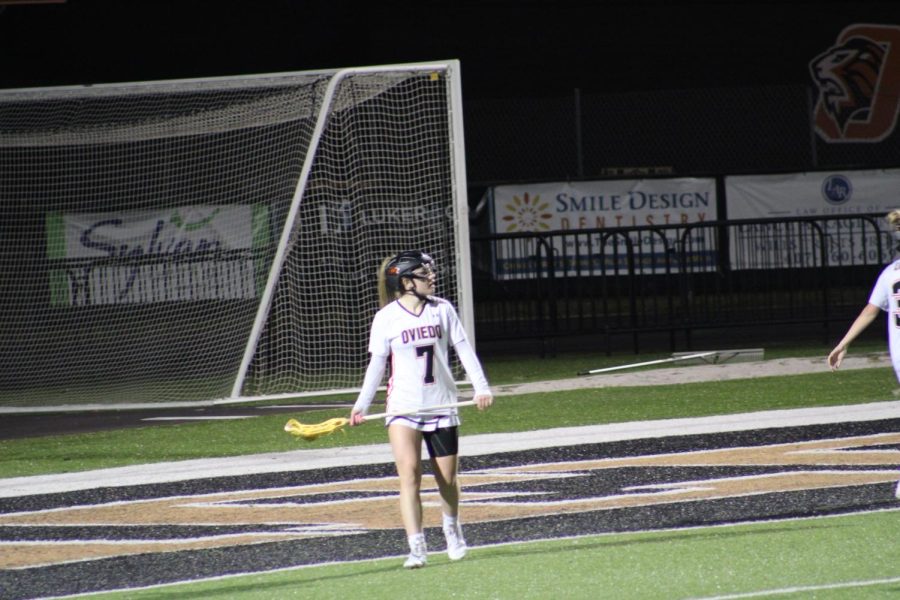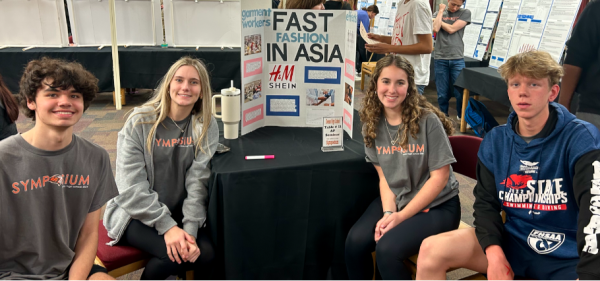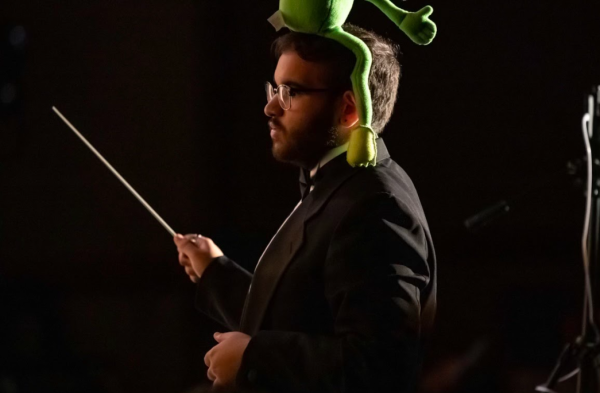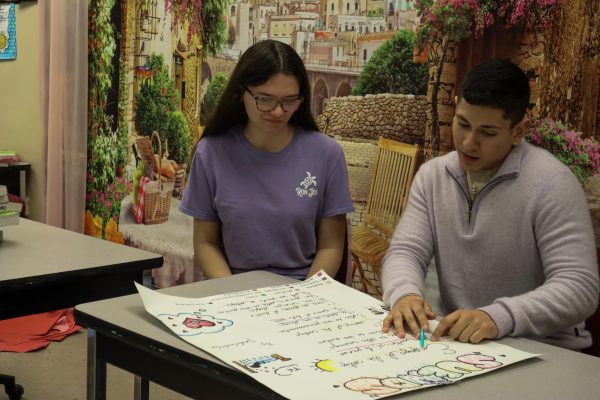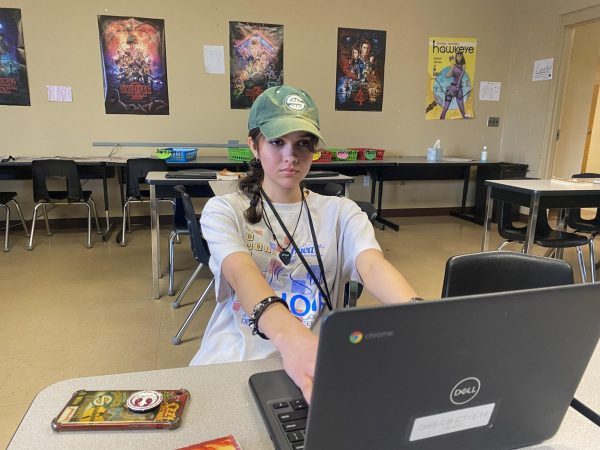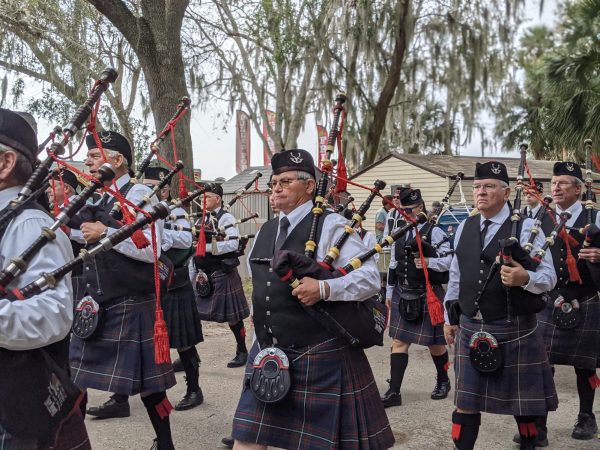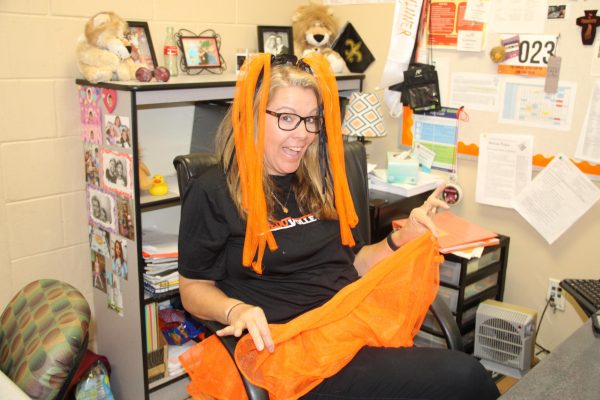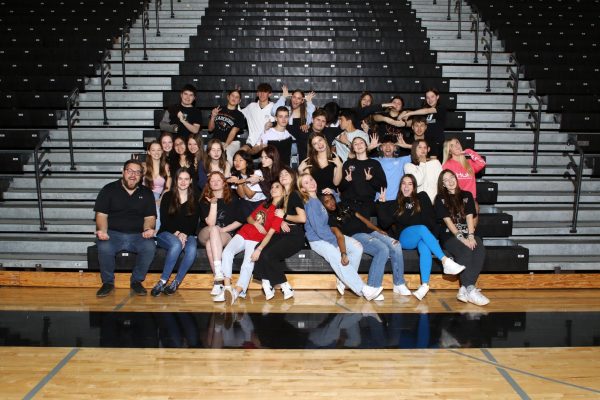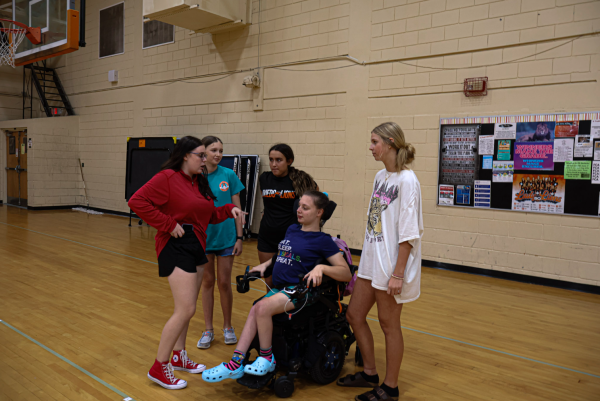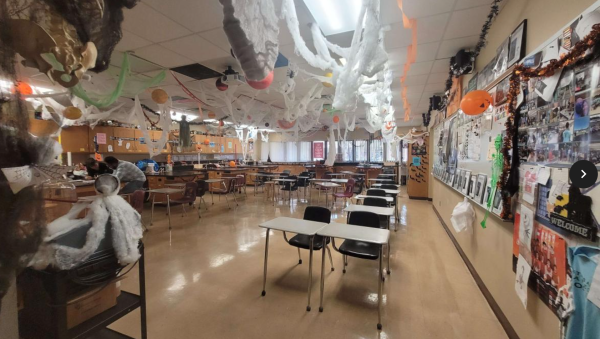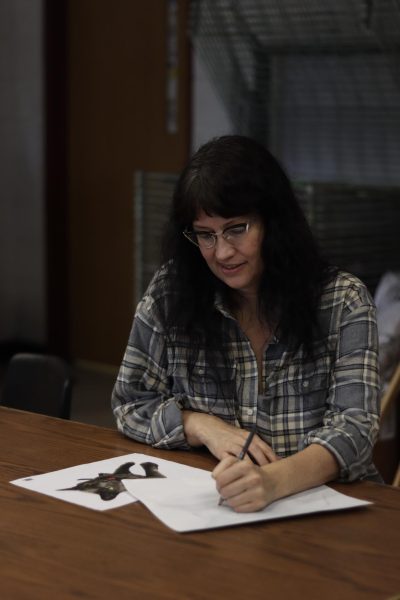Positive people fight for happiness
WEB EXCLUSIVE
Times Square lights up with joy as millions of people count down to the New Year each December. This is a moment of happiness for many, but this happiness is no longer ranking the same as it once did. In 2007, the U.S. ranked 3rd for the happiest country. In 2016, it ranked 19th, according to the World Happiness Report.
The reason for the U.S.’s decline in happiness: lack of social support. An additional report by the New York Times shows that, since 2005, depression in teens has been on the rise.
Despite all this negativity, people on campus are fighting back by promoting the better good.
Classroom Fun
Some people enjoy the little things in life. Physics teacher Chris Capp enjoys his fish, and he hopes they make others happy, too.
“Some of the students, if they do well, then they get to name a fish,” Capp said. “So I have some of my fish that have names, and the names were given to them by students.”
Capp said the first fish came to class when he had one small tank that he had to get rid of at his house.
“I decided to bring it to my class and put it in here, and it ended up spawning because I had other students who really liked them, and they were like, ‘Well, I have fish tanks at home, would you like one?’” Capp said. “So, all the fish tanks in here (but my first one) have all been given to me by students, and I have five fish tanks in here now.”
According to Capp, even a little spark can create an entire domino effect.
“Even if the smallest thing can make even a small change in someone else, maybe that person will make a small change,” Capp said. “So the domino effect can always be huge.”
Daily Kindness
Senior Jesica Litton finds positivity in supporting pitbulls by purchasing Bobs for Dogs shoes.
“I wear my pitbull shoes, and all profits go to the organization that benefits the dogs, and they don’t take too many of the profits for themselves,” Litton said. “They make sure that what they are promoting is actually what the money is going to.”
Another way Litton attempts to spread positivity is by being positive to other people.
“I also always try to remain positive, even if I am having a really bad day,” Litton said. “When I come to school, I make sure I’m always smiling and happy, even if isn’t the greatest of days, because I don’t want to walk in negatively. Everyone else in the room feels that negative energy and then others start to feel like they are having a bad day, too, just because I am.”
Litton also believes that with one little action, she can change the world.
“One small drop creates ripples, and those ripples turn into bigger ones and so on and so forth, so if someone sees my shoes and sees that I stand for pitbulls, and that I stand for dogs, then I might influence them to go do that themselves.” Litton said.
Local Impact
Little things people do can help promote the better good for even just one person, Bioscience teacher Kathy Savage believes.
“I honestly make it a habit to say something nice to a stranger everyday,” Savage said. “I try to say things like ‘You have really pretty blue eyes’ or just something nice, and that’s my own little movement.”
Although sophomore Jordan Kazka enjoys helping the community, he doesn’t believe that it impacts the world globally. Volunteering at St. Stevens is a way Kazaka likes to promote the better good.
“I volunteered at Winterfest, and I help at the flea market they have,” Kazaka said. “These events bring together the community and they are fun for families and everyone enjoys them.”
Overall, Savage doesn’t believe small actions goes on to be so global.
“I’m not necessarily sure that it impacts globally,” Savage said. “With people who are predisposed to that in the first place, then they don’t really think differently, unfortunately.”
Global Reach
Sophomore Rachel Nasby hopes that, by supporting the Save the Bees movement, she can help to support solving some world problems.
“Our world today has so many issues with trying to feed a lot of countries, and factors today that are causing it wouldn’t really happen if there were larger bee populations in those areas,” Nasby said.
Nasby has showed her support for the bee movement ever since she took AP Biology.
“I joined the bee movement in AP Biology when I was learning about how detrimental it is when you don’t have pollinators, such as the bee,s in our ecosystem,” Nasby said. “Bees are also incredibly adorable, so saving them would be a huge plus there too.”
Nasby believes her reputation as a science person allows her to promote the Save the Bees movement while also making others more aware.
“I’ve showed my support before by drawing pictures of bees and giving them to people,” Nasby said. “Another thing is that I’m trying to enter the Science Fair, and I want to do something with colonies collapsing, so then I can show my support.”
Your donation will support the student journalists of Oviedo High School. Your contribution will allow us to purchase equipment and cover our annual website hosting and printing costs. Thank you!

